DigiMedFor Project is a collaborative initiative that brings together 21 partners from 11 countries, encompassing a wide range of expertise and perspectives.
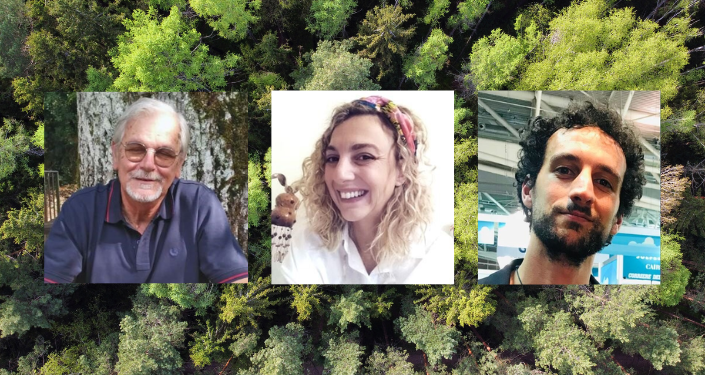
Stefano Berti, Silvia Vannini & Matteo Mazzoni Due
Role and Contribution:
Hosting Pilot No. 1 “Introduction of new wood qualification, classification and tagging techniques in the local forest-wnw supply chain” within the territory of the Union of Municipalities of Valdarno and Valdisieve
Expected Results:
Experiment with new technologies to improve and facilitate the sustainable management of our territory, especially forest areas.
Key Aspects of DigiMedFor:
Strengthen the wood production chain, reducing waste and maximizing the value of the wood resources of our forests, as well as combat illegal logging.
Leveraging Synergy:
The key to the success of this project’s partnership lies in the diversity and synergy among its members. Concrete results cannot be achieved if you do not have multiple points of view and if you do not have the willingness to contaminate your ideas to achieve a common goal.
Hopes and Expectations:
We hope that this project will help not only to improve land management but it will also provide an opportunity to enhance the many ecosystem services that our forests can offer and that more and more people can benefit from them.
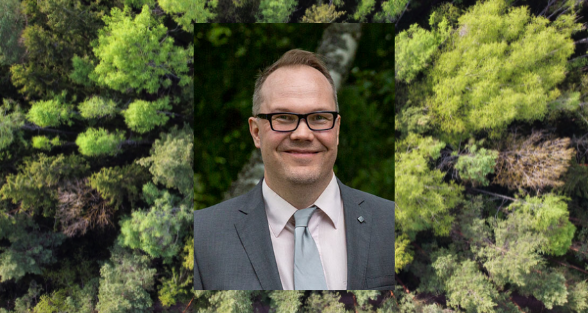
Picture: Simo Kivimäki, CEO/Trestima Oy
Role and Contribution:
Our role in the project is to tailor our TRESTIMA Forest Inventory system consisting of a mobile application and cloud service to work in typical Mediterranean forests.
Expected Results:
As a result, we hope to see that there is a digital tool available that can be used by the foresters and that the digitalization of forest data in the region will take a leap forward because of that.
Key Aspects of DigiMedFor:
As a Finnish software company, the most important aspect for us is to take and spread the applicable best practices from Finnish forest management work into the Mediterranean environment and way of working. Maybe we can also identify something to be adapted back home.
Leveraging Synergy:
We believe that there is a great strength in the diversity of our partners and this will help to assess every issue from different perspectives resulting in better results.
Hopes and Expectations:
We fully expect the project results to be long-lasting. The commitment by the parties certainly seems to indicate that.
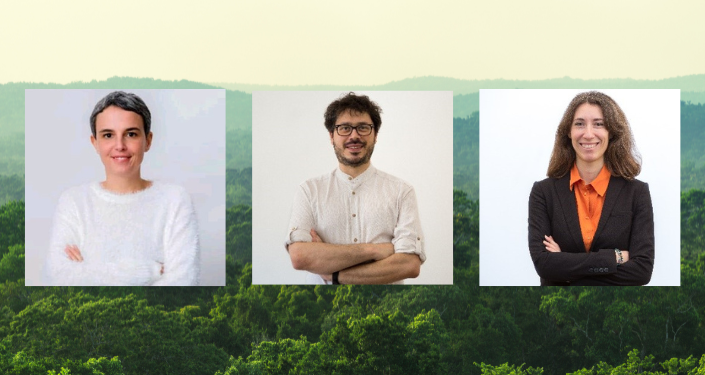
Alessandra Tedeschi PM, Andrea Capaccioli (leader of the demonstration and evaluation with end-user), Annalisa De Angelis (leader of stakeholder’s engagement and consultation)
Role and Contribution:
Deep Blue is involved in the engagement of relevant stakeholders in the implementation of the DigiMedFor solutions in forest pilots and replication sites and will carry out an impact assessment of these solutions which spans from the identification of new job opportunities in the forestry sector to the acceptance of the new technologies facilitating a systemic and contextual approach to the ethical issues related to their design, development, and implementation.
Expected Results:
Stakeholder participation is a key activity of the project and a crucial step for the establishment of the DigiMedFor solutions and to change the mindset and behaviour of the stakeholders, encouraging and supporting innovative processes and solutions as they work to identify the favourable environments and situations where change can evolve. Indeed, the fact that a service is designed in a participative way increases the chance for it to be accepted by end-users and guarantee the development of digital solutions which fulfil the actual needs of the forestry sector and maximise the success of the project outcomes.
Key Aspects of DigiMedFor:
The peculiar aspect of the project is its user-centred, use case-driven and co-design approach which means the involvement of users and stakeholders in the design process to keep their needs at the centre of solutions development.
DigiMedFor’s overall goal is to put in place the digital transformation of the technological landscape of the Mediterranean forest-wood and non-wood supply chain by increasing its competitiveness, thus allowing the different stakeholders to better manage and supply multiple forest ecosystem services, including the traceability of wood and non-wood origin from forests to end-users.
Leveraging Synergy:
The synergic effort of the Digimedfor consortium is essential to guarantee the success of the multi-actor approach of the project. The partners can count on a broad and heterogeneous network which includes not only the internal end-users, such as public authorities (Mediterranean Model Forest Network Secretariat managed by Tuscany Region, KAVALA, INRGREF), private companies (CFC), certification bodies (PEFC), forest associations (FOR-FR, FORHR) and associations of industry stakeholders (Conlegno), but also external stakeholders who have a fundamental role in all the phases of the project implementation from the definition of the needs, to the implementation and validation of the DigiMedFor solutions, as well as in the analysis of the social aspects that influence the acceptance of technological tools in the forest sector.
Hopes and Expectations:
We are assisting to loss of ecosystem services due to climatic and socio-economical changes which can be better monitored and mitigated thanks to the technological solutions that Digimedfor is developing to rethink the ecosystem-based management in ways that are compatible with the forest multi-functionality. The Digimedfor work will strengthen the competitiveness of European forests, highlighting their role in supplying pivotal provisioning and regulating ecoservices for human well-being.
We hope that the joint action with the end-users promoted by Digimedfor and facilitated by Deep Blue will lead to change the mindset and behaviour of the stakeholders, working to identify the ways and places in which the digital transformation of the mediterranean forests can evolve. Indeed, the fact that a service is designed in a participative way increases the chance for it to be accepted by the end-users, thus favouring its application and integration with innovative processes (including policies to support more sustainable behaviours).
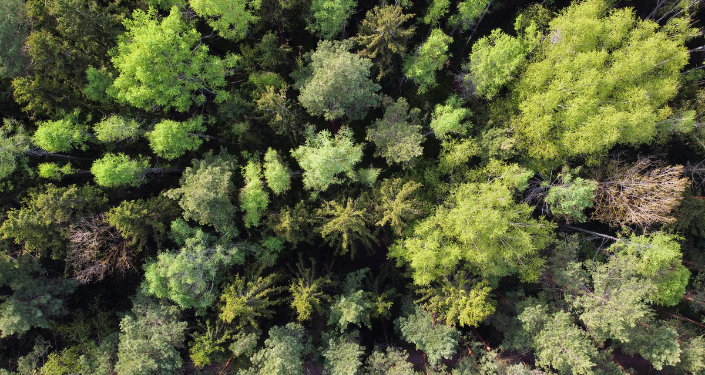
Role and Contribution:
Born as a start-up in 2013, TopView is an UAS Engineering SME specializing in the integration of drones in business processes and VLL airspace. Our mission is to make drones part of business activities to optimise processes and resources.
One of the main asset is the Pollicino™ Box: a drone tracker based on 4G NBIoT technology, which implements the remote identification service via network (NRI).
Our role in the project is to provide the blockchain-based traceability system. This part of the DigiMedFor solution will provide ”certified” measurements to the qualification and traceability processes.
Expected Results:
We expect to acquire knowledge of the forestry sector as a new field of application for our solutions and as a network of companies and institutions, starting from the project partners.
Key Aspects of DigiMedFor:
We give great value to the variety in the composition of the consortium both in terms of skills brought and countries involved, and to the engagement of community and stakeholders.
Leveraging Synergy:
We strongly believe in interdisciplinarity when it comes to innovation, because it allows you to face problems and find solutions in a creative and often more effective way.
Hopes and Expectations:
We are confident that the project succeds to enhance the sustainability, exploitation, and competitiveness of the mediterranean forests thanks to digitalisation, setting new best practices in the industry.
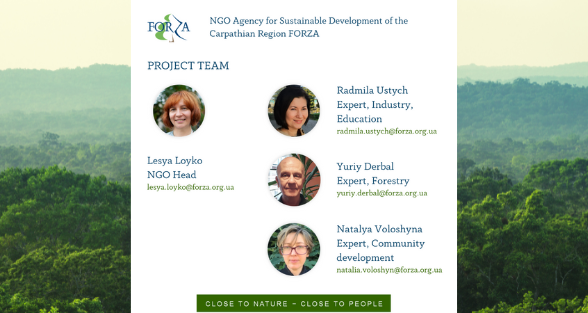
Role and Contribution:
We are a Ukrainian NGO, active in the field of sustainable local development, including sustainable forest management and innovations in forest management. In the latter field, we deal with such aspects as the introduction of new knowledge on innovations, capacity building, and bridging gaps.
We are happy to be part of testing innovations related to timber tracking systems at a Ukrainian replication site in DigiMedFor. Transparent and verifiable data on wood origins are essential to ensure that our forests are managed sustainably.
Expected Results:
As a key outcome, we foresee the acquisition of innovative tools that can be effectively put to use in Ukraine. These include innovative and digital practices in forestry and forest management: digitalization of forest data, digital maps, virtual forest systems, and decision support tools, and different approaches to electronic timber tracking.
The DigiMedFor knowledge platform is of particular interest to FORZA NGO and to the forest stakeholders in Ukraine. We look forward to using this open digital repository as a resource to access data, best practices, and innovative solutions in the forestry sector, ensuring we stay up-to-date with the latest developments in the field.
Key Aspects of DigiMedFor:
The important aspects of DigiMedFor for us in the actual innovations to be produced, tested, and replicated as well as large volumes of practical information and tools for forest managers and decision-makers, which will contribute to improved effectiveness and competitiveness of national forest sectors, including Ukraine’s, and forest management on a global scale.
Leveraging Synergy:
Some of the project partners knew each other before, for some, this is their first experience of collaborating. Partners of the project are dealing with different aspects related to forest management processes, which makes the consortium very integrated and complementary. By aligning their objectives, partners can collectively focus their efforts toward achieving the mutually agreed project goals. We believe that the synergy between partners can enhance creativity and efficiency ultimately leading to the success of the project.
Hopes and Expectations:
We are living and working in a very dynamic world these days, especially in the field of innovations and digitalization. Every new initiative or project brings added value to this field and improves the toolkits for forest managers: this results in a more effective and efficient sector, more confident and satisfied participants, better economic outputs of works, and higher quality of forests.
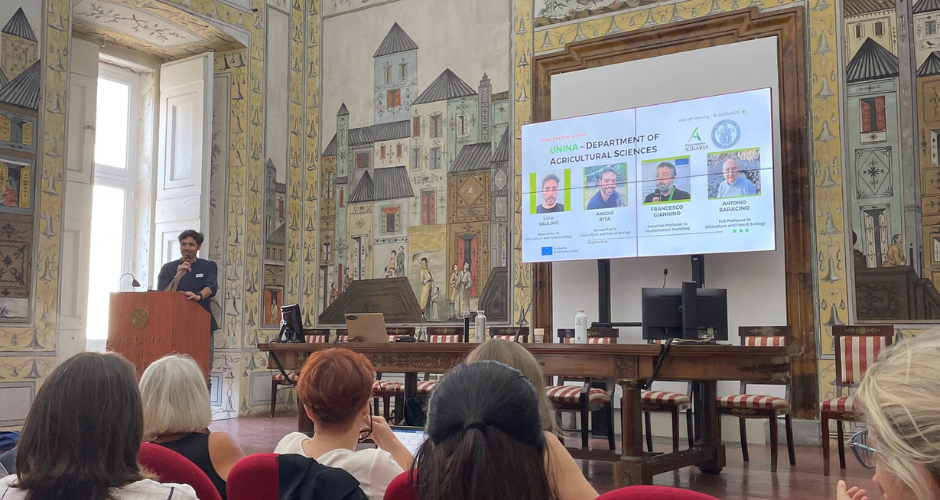
Role and Contribution:
The Laboratory of Silviculture and Forest Ecology (LSFE) at the University of Naples Federico II (UNINA) takes the helm as the coordinator of DigiMedFor. Their primary role? Managing the project’s consortium, digitalizing forest management, and creating the Mediterranean forest digital twin.
Expected Results:
According to our project leader, DigiMedFor is all about leveraging cutting-edge digital solutions to revolutionize how we manage and monitor Mediterranean forests. From the woods to the wood industry, the goal is user-friendly, transparent, and accessible digital tools that benefit decision-makers and stakeholders.
Leveraging Synergy:
With a multi-actor approach and a fusion of geospatial, AI, and ICT technologies, DigiMedFor brings together a diverse group of forestry experts, stakeholders, and tech specialists. The focus? Sustainable forest management, ecoservices delivery, and, of course, digitalization.
Hopes and Expectations:
What’s in it for the future? Our project leader envisions a southern European Mediterranean forest sector that’s more competitive, sustainable, and tech-savvy. The result? Enhanced sustainability, more ecosystem services, and resilient forests in the face of climate change.
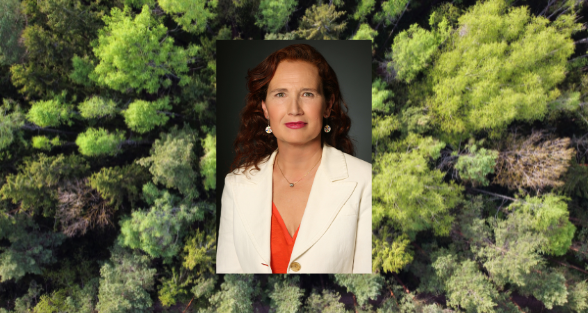
Role and Contribution:
Marta Salvador, Technical Manager of PEFC Spain. PEFC Spain is part of the leading global alliance of national forest certification systems, known as PEFC, the Programme for the Endorsement of Forest Certification System. PEFC Spain is a non-profit, non-governmental organization that promotes and disseminates Sustainable Forest Management, through forest certification and the chain of custody of forest products. This contributes to environmental and biodiversity conservation and promotes social economy, circularity, and sustainable development. Forest certification is a voluntary, market-based instrument, implemented through two separate but linked processes: sustainable forest management certification that assures that forests are managed in line with challenging environmental, social, and economic requirements, and Chain of custody certification that tracks forest-based products from sustainable sources to the final product. It demonstrates that each step of the supply chain is closely monitored through independent auditing complying with public and private sustainability demands.
PEFC Spain has a comprehensive digital registry of PEFC-certified forest management units in Spain, indicating adherence to a Sustainable Forest Management System by applicable legislation and UNE 162.002 Criteria and Indicators Standard. This registry includes the location of the forest management units and manager data and is in the process of being complemented with GIS geolocation data for all units. Within this project’s scope, the aim is to leverage all available information on certified areas, along with other layers of digital information, to quantify ecosystem services associated with biodiversity values and CO2 absorption.
Thus, PEFC Spain will collaborate to develop the tasks included in WP3 “Digital certification system for wood resources related ecoservices”, and WP6 6.4 “Future job and workforce scenarios and skills development” and 6.6 “DigiMedFor regulatory framework” to make digitalization of the SFM wider and available for forest owners, certification bodies and consumers.
Expected Results:
PEFC Spain, as part of the DigiMedFor project, likely aims to contribute to the modernization of technology in the Mediterranean forest supply chain. In this sense, PEFC Spain will include the data and information obtained in the project in the already available data engine platform to enhance the information on the certification of sustainable forest management, including indicators and ecosystem services. Also, it will increase transparency on sustainable forest management and certified areas by sharing information along the forest PEFC-certified supply chain, which means that data collection and availability might be simply employed in the evaluation of impact measurement across all production phases.
The expected outcomes of our participation include facilitating the enhancement of sustainable forest management in the Mediterranean region by measuring the ecosystem services associated with certified forest management units. Mediterranean forests are notable for their immense biodiversity, significance in combating desertification, and CO2 absorption, with less emphasis on wood production. Therefore, the swift and efficient quantification of ecosystem services can drive sustainable forest management in these areas and streamline decision-making to maximize their potential.
Key Aspects of DigiMedFor:
The key aspects of DigiMedFor include integrating advanced digital solutions such as geospatial analysis, artificial intelligence, and digital twin modeling to enhance the sustainability of wood production. These solutions will contribute to improving the adapting SFM models in the Mediterranean forest sector and will help replicate them in other forests.
Leveraging Synergy:
The collaboration of 21 partners from 11 countries with diverse expertise spanning the entire value chain is crucial for the success of DigiMedFor. The synergy between partners allows for the exchange of knowledge, skills, and resources, facilitating the development and implementation of innovative digital solutions for sustainable forest management among all of the countries involved, so it can better address many challenges posed by climate change and socio-economic factors in the Mediterranean forest sector.
Hopes and Expectations:
The expectations for the DigiMedFor project include the improvement of competitiveness, sustainability, and technological/digital progress in the Mediterranean forest supply chain. The lasting effects may include a more efficient and digitally advanced wood supply chain, aligning with the European Union’s forest and digital strategies, and serving as a model for other regions.
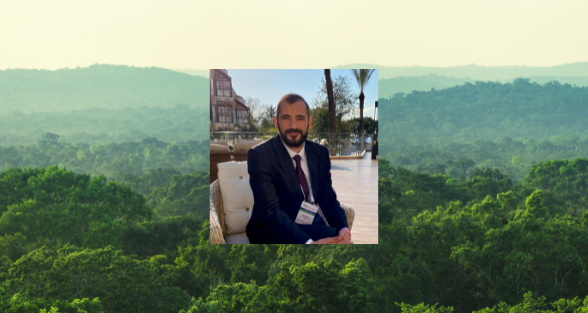
Role and Contribution:
In this joint and worthwhile project, Marmara Forestry Research Institute (MARMARA) will provide replication sites in the Yalova Model Forest where methods designed by other partners are planned to be employed. The region has a myriad of forest types, from natural old-growth deciduous stands to pine plantations. DIGIMEDFOR partners can work in a forest unit that best suits research objectives.
Expected Results:
MARMARA will take part in the work packages of “Grading and traceability of wood resources” and “Demonstration and evaluation with end-users”. Innovative digital solutions for forestry will be developed by other beneficiaries; and the suitability, usability, acceptability, and impact of those solutions will be tested within the scope of these work packages. The participation of MARMARA will give an opportunity to other partners to practice and evaluate those new technological innovations in the Yalova Model Forest where various forestry activities are carried out while the Forest Service in Türkiye will see a creative and problem-solving approach to problems in forestry, meaning a win-win situation.
Key Aspects of DigiMedFor:
Digitalization in forestry offers the prospect of enhancing sustainability, efficiency, and conservation efforts, making it an indispensable component of modern forest management. DigiMedFor seeks to revolutionize the technical nature of the Mediterranean forest-wood supply chain to increase its competitiveness and empower stakeholders to manage and deliver multiple forest services, including tracking wood from the forest to the user, making DigiMedFor an excellent and representative example of digitalization in forestry.
Leveraging Synergy:
Pooling resources can be of great advantage to such a collaborative project. Partners can join forces with their financial, material, or personnel resources to more effectively reach the research objectives.
Hopes and Expectations:
I hope cutting-edge digital technologies, including geo-spatial, AI, and modelling tools with ICT, will be deployed successfully. These developments should have a major impact on the observation and management of forest resources along the supply chain, making processes more effective and sustainable.

Role and Contribution:
ELARD Knowledge Hub plays a pivotal role in the DigiMedFor project, specifically in Work Packages 7, focusing on stakeholders’ engagement, dissemination, and communication. As the project manager, Laura Incze, I oversee the effective implementation of these crucial aspects. Marion has the overall coordinating perspective, and Annie designs the vision and crafting strategies.
Expected Results:
Through our active involvement, we anticipate enhanced awareness and understanding of the DigiMedFor project among stakeholders. Our efforts in dissemination and communication aim to reach a wider audience, fostering collaboration, and ultimately contributing to the project’s success.
Key Aspects of DigiMedFor:
The collaborative nature of DigiMedFor is paramount. The project’s goals, centered around sustainable forestry and digital innovation, align with ELARD’s commitment to fostering innovation in rural development. Integration of these aspects ensures a comprehensive and impactful approach.
Leveraging Synergy:
Synergy among partners is a key strength. By leveraging diverse expertise, experiences, and resources, we can collectively address challenges more effectively. Open communication and collaboration enable the seamless flow of ideas, ensuring a holistic and successful project outcome.
Hopes and Expectations:
Our hopes are tied to the lasting positive effects on Mediterranean forests and the communities dependent on them. We aim for tangible outcomes that not only enhance sustainability in the region but also serve as a model for similar initiatives globally. The enduring impact of DigiMedFor is a core expectation.
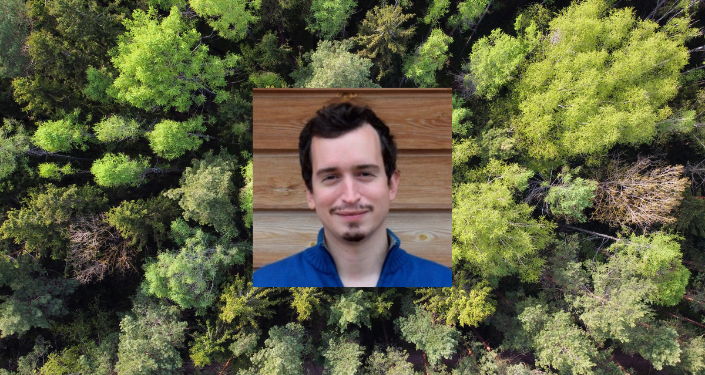
Antonio de Marco, Innovation Manager at Cesefor
Role and Contribution:
The role played by Cesefor is to develop and enable a series of tools that will benefit the industry and other stakeholders in the forestry sector. We do this by developing a traceability tool, an end-user toolkit, and a platform that brings together the knowledge that is developed throughout the project.
Expected Results:
As a result, we are seeking to develop certain tools that we consider very important to have in existence, and at the same time to introduce them in the different countries of the participating partners.
Key Aspects of DigiMedFor:
It is important to consider that the project framework brings together a set of partners that may have a similar geographical reality with respect to the problems of the reality of forest digitisation, but add the social, and political problems or peculiarities that they have in their territories.
Leveraging Synergy:
There are many types of partners of different entity categories. This can be very useful because in addition to the know-how of each of these entities, these entities in turn have a network of contacts and stakeholders who can provide a lot of feedback.
Hopes and Expectations:
We have good expectations because with the meetings we have had so far we see a common interest among all the partners and that makes us think that all the people involved will work to boost the results of the project in their environments.

Role and Contribution:
The IBE (Institute of Bioeconomics) is a research institute belonging to the National Research Council. In our Institute we address many issues related to the climate, the environment, agricultural and forestry production. The working group participating in the project focuses on the characterization and qualification of timber and its derivatives. Specifically, the activities concern the evaluation of wood quality using different Non-Destructive Techniques (NDT), from forests to final assortments.
Expected Results:
We would like to achieve an improvement in the modern timber qualification techniques (using NDT and portable instruments) and the introduction of reliable traceability systems. We also hope for greater diffusion of digital and instrumental techniques, obtained through practical demonstrations aimed at supply chain operators.
Key Aspects of DigiMedFor:
Digitalisation in general is developing very quickly in the most different sectors. In this sense the world of forestry and wood production cannot be outdone. The project, therefore, has the advantage of implementing the development of technologies that can be used effectively by the several actors in the forest-wood supply chain, in order to facilitate, speed up and improve their work. At the same time, the collection and organization of data and information from forest stands will allow the development of increasingly effective knowledge and management tools and an enhancement of both the production and the services provided by the forests.
But the main strength of the project is to involve forests and territories in the Mediterranean area, which are usually more disadvantaged in the management and exploitation of their forest resources than those of central and northern Europe.
Leveraging Synergy:
The Project brings together very different skills and professional figures within it. Furthermore, it makes use of the participation of the Mediterranean Network of Model Forests, which allows it to reach a high number of stakeholders, a more effective collection of requests and a wider dissemination of the results achieved. This is certainly a source of enrichment because only the sharing of different points of view can lead to the achievement of truly effective solutions. However, for the success of the project it is essential to know how to communicate and share experiences and results.
Hopes and Expectations:
Our expectations are aimed at creating real benefits for forestry managers and the wood production chain. We are aware that these resources (wood and the various ecosystem services provided by forests) will be increasingly central in a future that can no longer ignore putting the environment and the correct management of natural resources first. New digital technologies can be a useful and effective tool for monitoring, managing and enhancing the entire forest-wood supply chain.

Enrique Doblas – CREAF team leader, & Burcu Berk – DigiMedFor Task leader & Pilot coordinator.
Role and Contribution:
In my role at CREAF within the DigiMedFor project, I play a crucial part in enhancing the PEFC Spain platform and CFC pilot sites. Specifically, I am responsible for expanding the platform’s capabilities by establishing connections between individual forest management units and key indicators related to Sustainable Forest Management. Additionally, I also work to link these units with data on ecosystem and cultural services. This enhancement aims to provide valuable information to end consumers, effectively communicating the numerous benefits associated with these sustainable practices and ES services.
Expected Results:
I seek to bridge the gap between sustainable forest management practices, ecosystem services, and end consumers. By creating a digital certification system that provides comprehensive information and educates stakeholders, it aims to promote responsible forest management, support environmental conservation, and foster informed decision-making throughout the supply chain, benefiting both the forests and society as a whole.
Key Aspects of DigiMedFor:
I’m enthusiastic about the objective of creating a conducive environment for fostering business networks and fully leveraging the DigiMedFor solution. This initiative plays a important role in establishing connections and positioning DigiMedFor as a project centered around innovative solutions.
Leveraging Synergy:
The synergy among DigiMedFor’s partners can be a driving force behind the project’s success by promoting collaboration, resource sharing, validation, and innovation while reducing risks and enhancing its overall impact.
Hopes and Expectations:
My primary hope is to foster a collaborative partnership, an essential element for working in harmony with our partners. Additionally, my secondary goal is to facilitate the digitalization of Mediterranean forests into user-friendly tools, accessible to society, communities, researchers, universities, governments, and other stakeholders, thus ensuring widespread and effortless access to the benefits it offers which is needed.
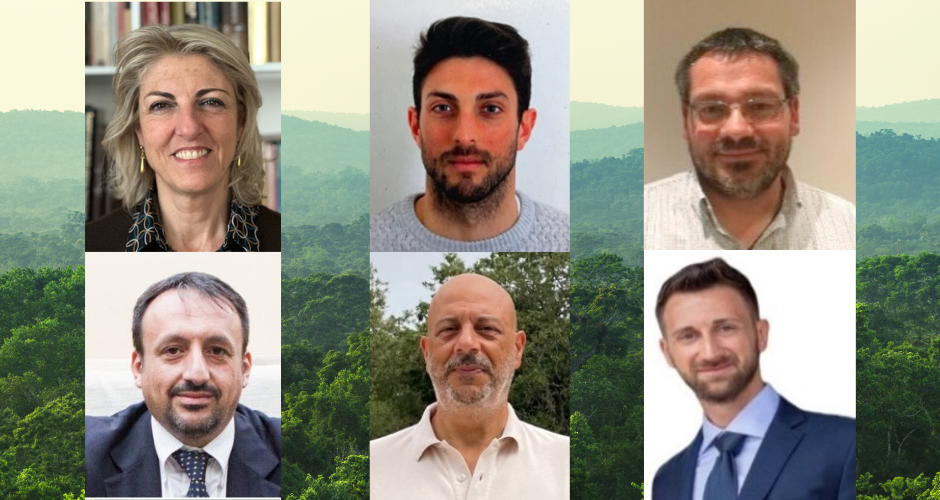
Role and Contribution:
Conlegno (Consorzio Servizi Legno Sughero) is particularly involved in the definition of the legislative framework and collaborates on other activities, such as customer identification, workforce scenarios, skills development, and Stakeholders’ engagement and consultation.
Expected Results:
Conlegno expects the project to successfully facilitate the digital transition in the context of forest resource management and especially product supply chains that, now more than ever, need objective and reliable information, especially because of the implementation of the new EU regulation against deforestation and forest degradation.
Key Aspects of DigiMedFor:
First of all, the international community’s involvement to enable and accelerate the aforementioned digital transition of Mediterranean forests, which risk being increasingly marginalized in this context, both due to their intrinsic structural characteristics and to the ecological conditions increasingly challenged by climate change.
Leveraging Synergy:
The project involves partners of very different natures and experiences, just as the needs of the stakeholders are different, even between different countries.
Conlegno believes that this aspect represents a great opportunity for all participants and for the success of the project itself. Therefore, we should ensure that information is circulated as best as possible, also encouraging collegial moments between the various partners.
Hopes and Expectations:
We hope that the technological solutions developed by the project will meet the expectations of the various stakeholders and prove to be reliable and affordable for the operators they address. Only in this way will they be able to be practically applied sustainably, even in the long term.